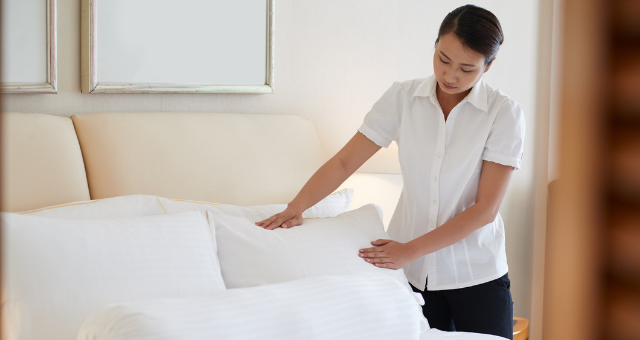The COVID-19 pandemic has forced the global economy and virtually all of the industries that operate within it to evaluate business models, innovate and explore options in technology to improve efficiency and preserve core business functions ready for the recovery, whenever it came.
Now, with vaccinations rates on a sharp incline and Australia’s domestic travel puzzle nearing completion with the reintroduction of NSW and Victoria to the scene, Australia’s hotels are in a race against time to ensure they are ready for guests and able to maintain the service levels their brand dictates.
A big part of that is ensuring sufficient staffing levels are on deck, suitably skilled, trained and able to carry out their duties to ensure efficient operations. As devastating as the pandemic has been for the hospitality and tourism industry, the staff exodus it caused by stood-down workers opting not to return and instead find employment in more immediately secure sectors has left a gaping hole in hotel workforces, setting a serious challenge for labour outsourcing firms.

In the UK, more than 1.3 million workers will be needed to help the national accommodation and hospitality sector recover from more than 900,000 who left during the pandemic.
Easter 2021 saw many hotels restrict the number of rooms they were able to sell due to the lack of staff preventing them from being serviced and cleaned each day. This labour shortfall extended to housekeepers, kitchen staff, front desk teams and other front-of-house crew on hourly pay rates.
Leanne Graham, Executive General Manager from workforce outsourcing firm, ahs hospitality, said the company has redesigned its recruitment processes to move applicants through more quickly, while still retaining high standards of quality control and candidate care.
“We’ve invested in technology to not only support this but enable a candidate database so we have team members available at all times,” Graham said.
“We are also rolling out a new time and attendance system which supports workforce optimisation and revisited our employee value proposition to ensure we attract and retain our team members. Lastly, of course we are part of the Chandler Macleod Group and so leveraging scale is a benefit for ahs.”
Of course, the damage done to the hotel sector during the pandemic cannot be understated. The volatility concerning hours available forced many workers to look elsewhere, while many others under permanent employ were stood down for sometimes months at a time. Many hotels are now actively engaging with these workforces to find out who is available and willing to return and their vaccination status.
Many have introduced flexible work policies to increase their talent pools, while others have implemented retention strategies loaded with health benefits and other perks to ensure they can hang on to their people as long as possible. Despite this, Graham said, the image of the industry not offering job security was one that needed to be rectified.
“In addition, the lack of international students and backpackers coming into Australia is driving a shortfall in the casual component of the available workforce. Hence the work we have underway around workforce optimisation is critical,” Graham concluded.
Enquire with ahs hospitality about their outsourcing solutions.



